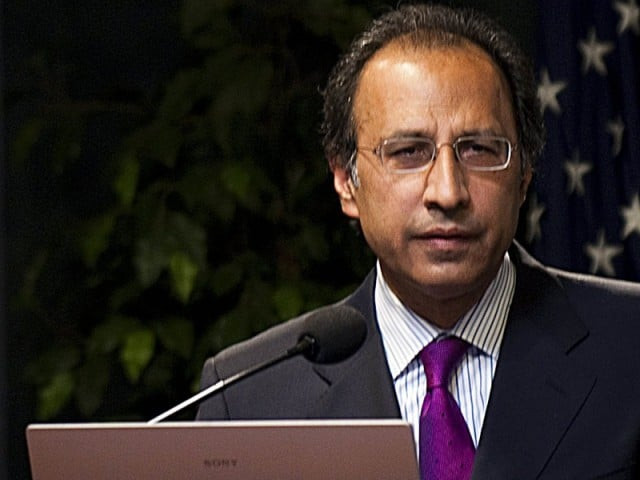Economic Survey 2011-2: Govt missed all targets, but reined in inflation
Half the industrial capacity remains idle.

In its fourth year, the Pakistan Peoples Party (PPP)-led government managed to miss all its economic targets, except containing inflation.
The Economic Survey of Pakistan, to be unveiled by Finance Minister Dr Abdul Hafeez Shaikh on Thursday (today), states that growth in the outgoing fiscal 2011-12 clocked in at 3.7%, markedly below the target of 4.2%.
The biggest admission of failure in the budget paper is that half of the industrial capacity remains idle, primarily due to the energy crisis. Growth next year can therefore be achieved without any new investment, simply by tapping this idle capacity.
The finance minister, however, will try to mitigate the impact of domestic policy failures and cite global woes for most domestic problems, and also place some responsibility on nature, or the ‘Great Floods’.
“The progress on resolution of war on terror could have offered support to economic growth in 2011-2, but at the beginning of the current fiscal, natural calamity struck,” the paper states.
According to the document, this year’s growth target of 4.2% was based upon the underlying assumptions of “global recovery, better fiscal management, improved energy availability and a conducive business environment.”
According to the paper, “The 3.7% growth was achieved due to bumper crops in Punjab, improved value-addition in large scale manufacturing and improvement in construction and financial sectors.” The targets for agriculture, industrial and services sectors have been missed. “The industrial sector remained confronted with gas and electricity outages.”
Meanwhile, national savings fell to 10.8%, against a target of 13.2%, and investment fell to 12.5%.
The government’s economic managers confessed that they have failed to manage subsidies, resulting into a higher budget deficit. The paper states that excluding Rs391 billion circular debt payments, budget deficit has crossed 4.3% of gross domestic product (GDP) and the revised target will be difficult to achieve.
Monetary growth
The paper states that the central bank reduced its policy rate by 200 basis points, from 14% to 12%, in order to keep real interest rates from suffocating growth. Due to the surge in government borrowings, money supply grew by 8.7% during the first 10 months of the outgoing fiscal.
Meanwhile, net foreign assets of the banking sector reduced by Rs261 billion in the first 10 months, as opposed to an increase of Rs174 billion, last year. The contraction was mainly due to lower external inflows and higher current account deficit – the gap between foreign receipts and payments, the paper states.
It adds that pressure on the rupee is likely to continue due to uncertain foreign inflows, and substantial government borrowing to finance the budget deficit.
Balance of payments
Against the annual target of $1.4 billion, or 0.6% of GDP, current account deficit widened to $3 billion in the first nine months of the outgoing fiscal, according to the document. The entire contribution to this surge came from trade imbalance, which stood at $12.8 billion in nine months, the paper adds.
“Exports could not sustain the pressure of falling global demand and domestic supply side constraints,” it states.
Total public debt surged to Rs12.1 trillion, or 58.2% of GDP, a net increase of Rs1.3 trillion in just the first months. Foreign investment plunged by 65% in ten months.
Inflation
Inflation in the first 10 months averaged at 10.8%, against an annual target of 12%. Despite showing some improvement, inflation remains in double-digits for the consecutive fifth year.
Future prospects
For the upcoming fiscal, growth outlook depends on industrial revival, which, in turn, hinges on energy sector reforms, according to the Annual Plan 2012-3.
Moreover, fiscal management remains a challenge and is critical for keeping inflation in single digits. External sector weaknesses and the global environment are posing a threat to the external account, the paper forewarns.
Published in The Express Tribune, May 31st, 2012.



















COMMENTS
Comments are moderated and generally will be posted if they are on-topic and not abusive.
For more information, please see our Comments FAQ